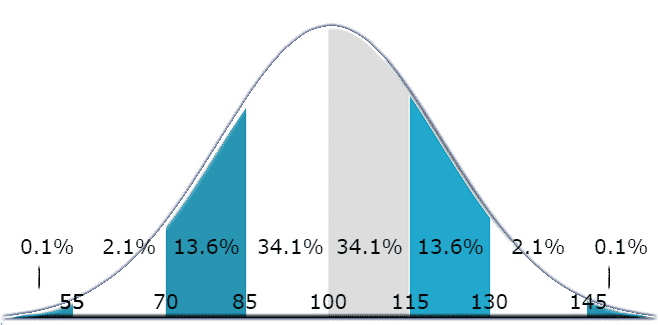If you’re unfamiliar with IQ tests, our questions and answers should help you gain some insights to some of the most frequently asked questions about the test.
What does IQ mean?
IQ stands for Intelligent Quotient. It is the measure of a person’s intelligence.
What does IQ measure?
IQ measures various areas of intelligence such as memory, spatial recognition and analytical thinking. It does not measure any specific area of knowledge, instead it measures your ability to learn.
How do you increase your IQ?
The general consensus around this question is yes, you can in fact increase your IQ. However, there are many factors to consider when assessing this statement. First, studies have shown that IQ can change drastically when people are younger. That said, an IQ test is an imperfect psychometric method for assessing a biological IQ. So, in a sense people can train themselves in certain ways to improve neural efficiency or practice methods of thinking that will help you perform better on an IQ test.
Several professionals debated this very topic several years ago on livescience.com if you’d like to read some further opinions on the subject.
How accurate are IQ tests?
Generally, IQ tests fall between a 5-6 point variance when administered consistently, meaning that they are quite accurate. Of course, there are outside factors like personal stress that may impact a person’s performance, but by and large popular tests like the Wechsler tests are viewed as accurate.
Where can I take an IQ test?
Unofficial IQ tests can be taken online for fun or for a small fee. Official IQ tests will need to be administered through a qualified professional, which in the United States means through a licensed psychologist or organization such as Mensa.
How much does an IQ test cost?
An IQ test ranges in price depending on where you go to take the test and what test you take. The most inexpensive route to an official IQ test would be through Mensa, which currently offers the test for $60. This link will take you to there website to find testing locations near you in the United States.
Are online IQ tests accurate?
Unless you’re familiar with the actual formats and question types, you’ll find that most online “IQ tests” are pretty hit or miss. Some follow formats that are fairly close and may give you a fairly accurate accounting of your IQ, though most likely will not. In general, it’s hard to put stock in most online IQ tests as the format, setting and question types likely will not mirror an official testing situation.
Are IQ tests culturally biased?
The existence of culture free IQ tests lends credence to the fact that many intelligence tests contain cultural bias. But what does this mean exactly? There are differences across cultures where certain groups may or may not be exposed to certain language, grammar, folklore, etc. When IQ tests include elements that are familiar to members of one culture but not to others, it may provide overly positive or negative results depending on the test taker’s culture. As such, many tests like the Culture Fair IQ Scale developed by Raymond B. Cattell largely focus on non-verbal tasks using mazes and symbols to try to assess and score intelligence with as culturally neutral approach as possible.
What is the IQ score distribution?
IQ tests like the Wechsler Intelligence Scale are generally designed to have a mean score of 100 and a standard deviation of 15. This makes for IQ score distributions that look like a bell curve, as you can see below.

As you can see from the graph above, roughly 95% of the population falls between an IQ of 70 and 130. Interestingly, human beings have become more intelligent over time, which means that IQ tests have had to become more difficult to accommodate changes in intelligence. This is known as the Flynn Effect.
When was the IQ test invented?
The first IQ test was created in 1904 by Alfred Binet and Theodore Simon.
